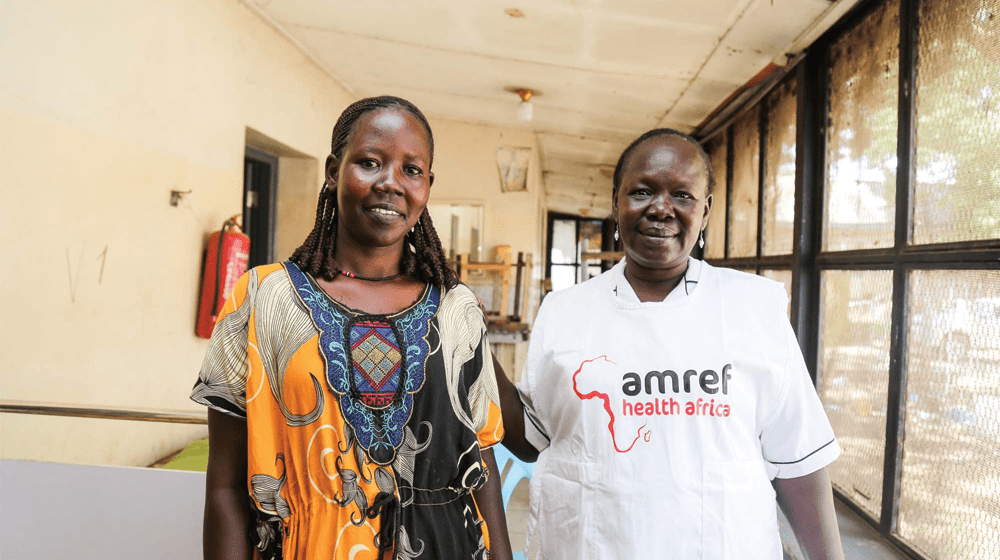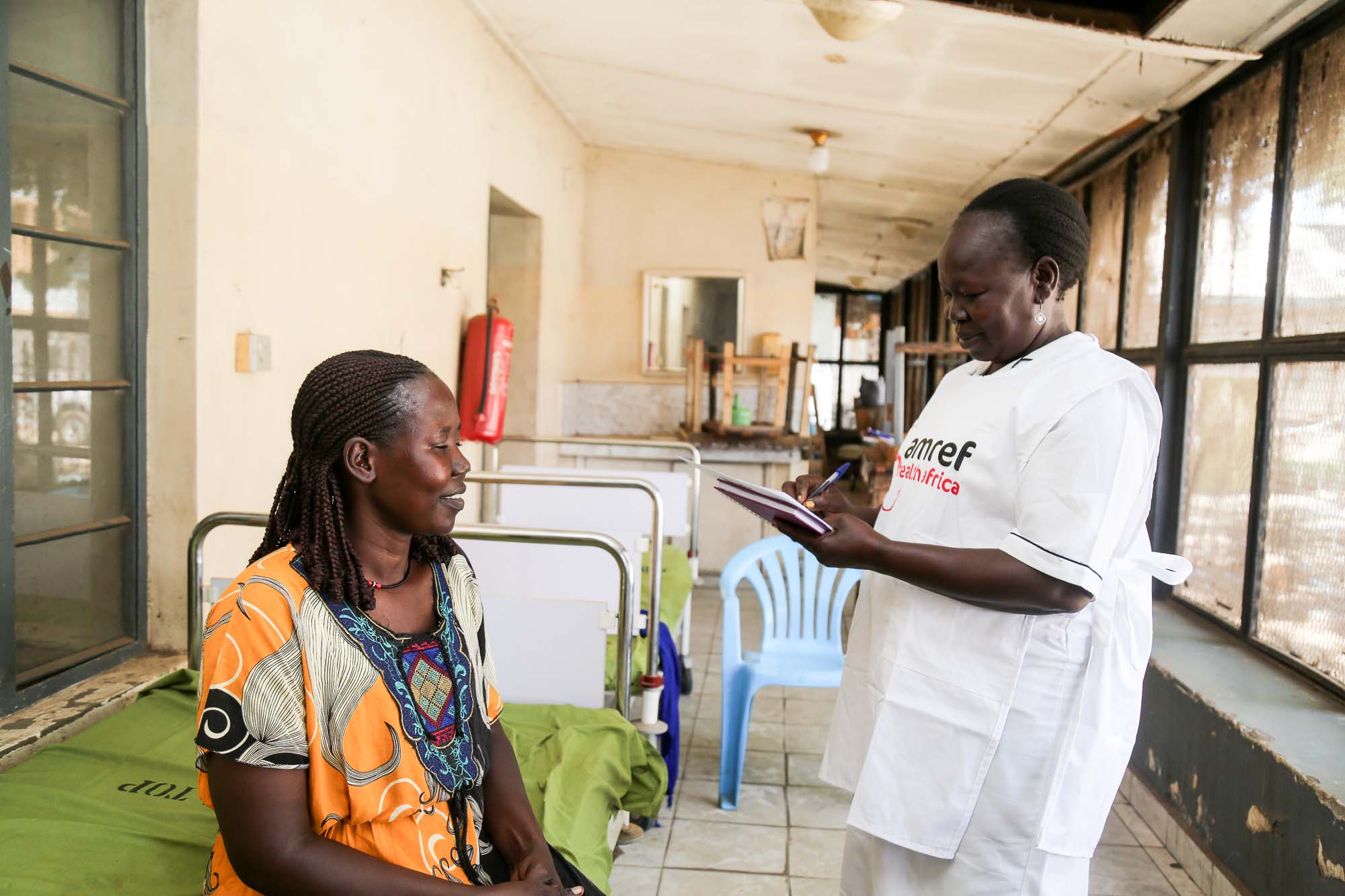Juba-Soft-spoken, compassionate, and cheerful. Hayat Peter is one of the nurses who is contributing to ending obstetric fistula in Juba/South Sudan. A registered nurse by profession for the last 22 years, she has helped many patients. However, assisting fistula patients to regain their dignity is one of the biggest moments in her career, according to Hayat.
The 42-year-old is a mother of nine children, seven of which are adopted. Her husband died in 2007 while on duty as a police officer in Yambio State. Ever since she had to take care of her family as a single mother. Apart from being a mother, her other life-long dream was to help women suffering from Obstetric fistula. Hayat works at the gynecological section of Juba Teaching Hospital, the country’s only referral hospital, and she is one of the 23 nurses trained by Amref Health Africa in partnership with UNFPA, in South Sudan to support fistula patients and offer obstetric care. “I am happy that I was trained to help women suffering from Fistula, I have supported over 200 fistula surgeries, I am proud of that,” she confirms.
Obstetric fistula is one of the most serious and tragic childbirth injuries. A hole between the birth canal and bladder and/or rectum, it is caused by prolonged, obstructed labour without access to timely, high-quality medical treatment. A mother with OF suffers from urinary and or fecal incontinence.
The horrible ordeal fistula patients go through leads to dejection/abandonment by family and community members, but for Hayat, she provides hope and care to them; “I do not feel they are dirty, I talk to them, we laugh, hold hands, and hug, I burn an aromatic incense around the women which produces a scented smoke that makes them feel comfortable and happy,” she explains.
During her 22-years nursing career, Hayat says most fistula patients are between 13-15 years something she attributes to early pregnancy and inadequate access to health facilities.
WHO (2018) states that 19.4% of births in South Sudan are attended to by skilled health personnel. This notwithstanding, about 1/3 of all girls in South Sudan get pregnant before turning 15 (UNICEF, 2020).
“It is important to sensitize and educate young girls as well as communities not to expose them to sexual abuse, child marriage, and early pregnancies because their bodies are not developed enough to handle pregnancy,” says Hayat
Her highest moments are when the survivors she serves call to express gratitude from the farthest parts of South Sudan, “Fistula survivors still call me to appreciate the free surgery that transformed their lives and this is not just once, it is rewarding and makes me proud,” she adds with beaming smile.
Since 2019, Amref through support of UNFPA has restored the dignity of 80 fistula patients through surgeries in South Sudan.
To meet the ever-growing need for services for Fistula patients, Amref Health Africa in South Sudan in partnership with UNFPA mentors and trains health workers and sets up fistula repair teams from various states of South Sudan. These teams include fistula surgeons, medical officers, operating theatre nurses, midwives, ward nurses, and anesthetists in obstetric fistula surgery and care for fistula patients.
South Sudan has a limited number of facilities that offer obstetric fistula repair. The medical camps are periodic compared to the backlog of over 60,000 cases. Hayat urges Amref and its partners including UNFPA to support more camps for women to pick up the pieces of their lives broken by fistula and rebuild a better life for themselves.
Obstetric fistula is preventable but also surgically curable once it occurs. In the past few years, AMREF, UNFPA and partners launched the Campaign to End obstetric Fistula, now active to prevent and treat OF in more camps and to rehabilitate fistula survivors.



